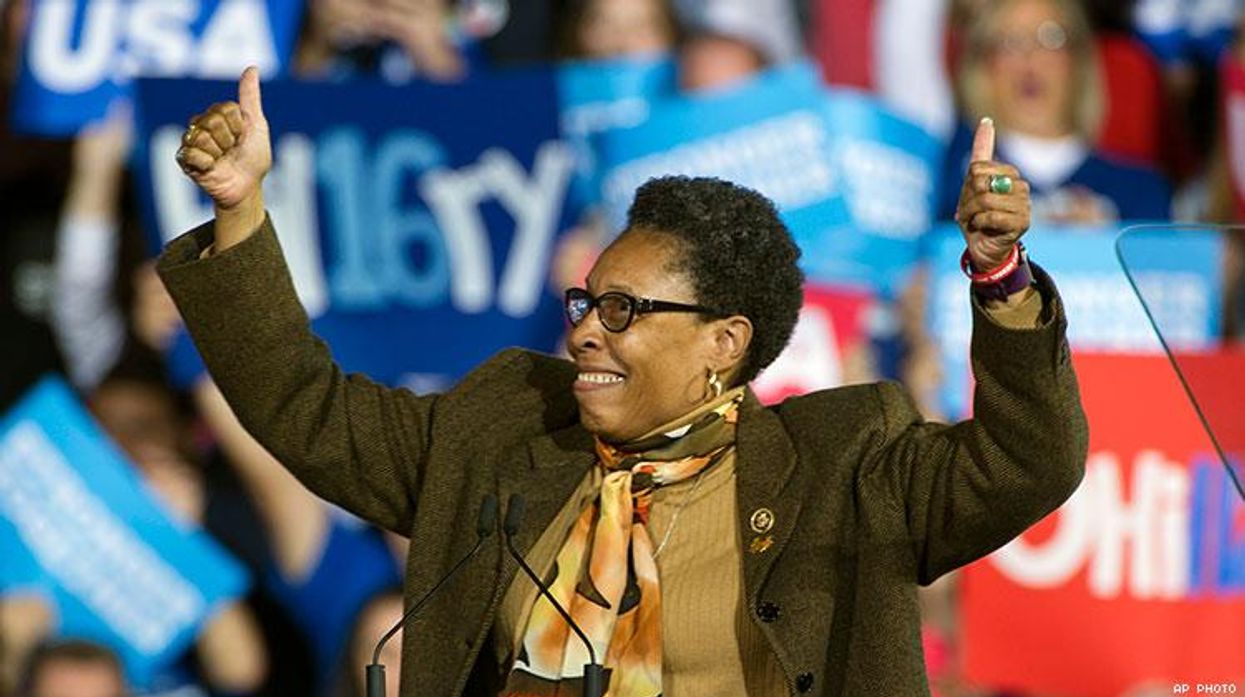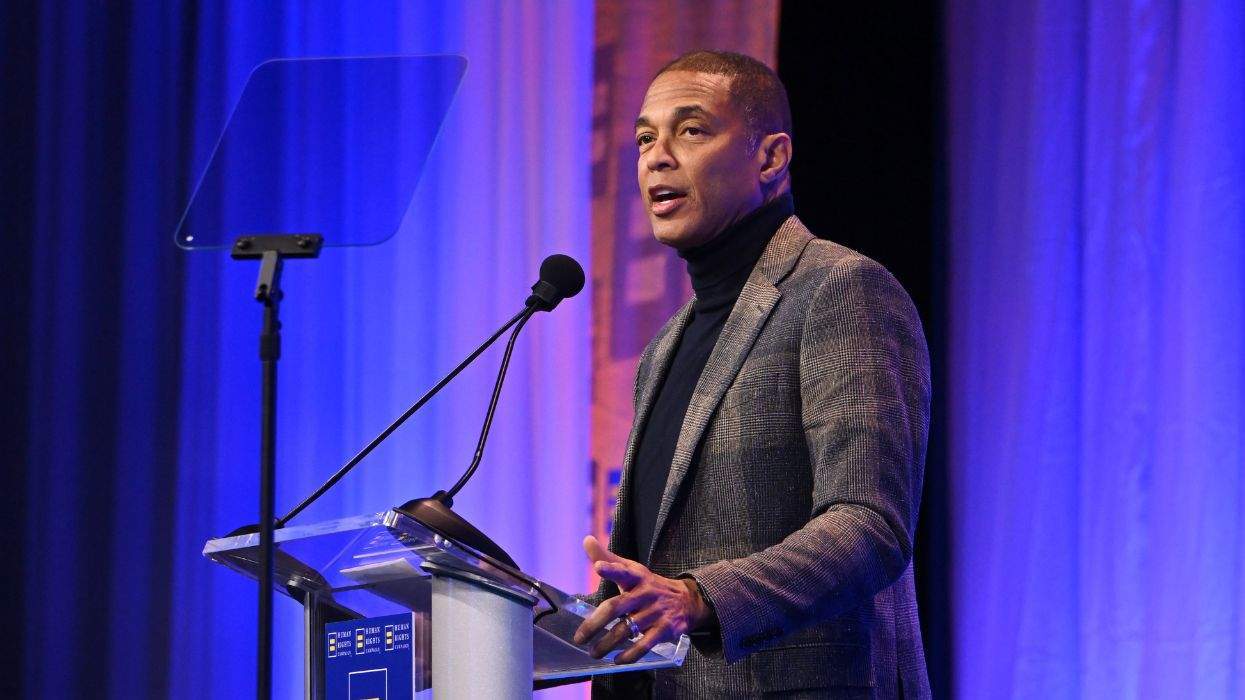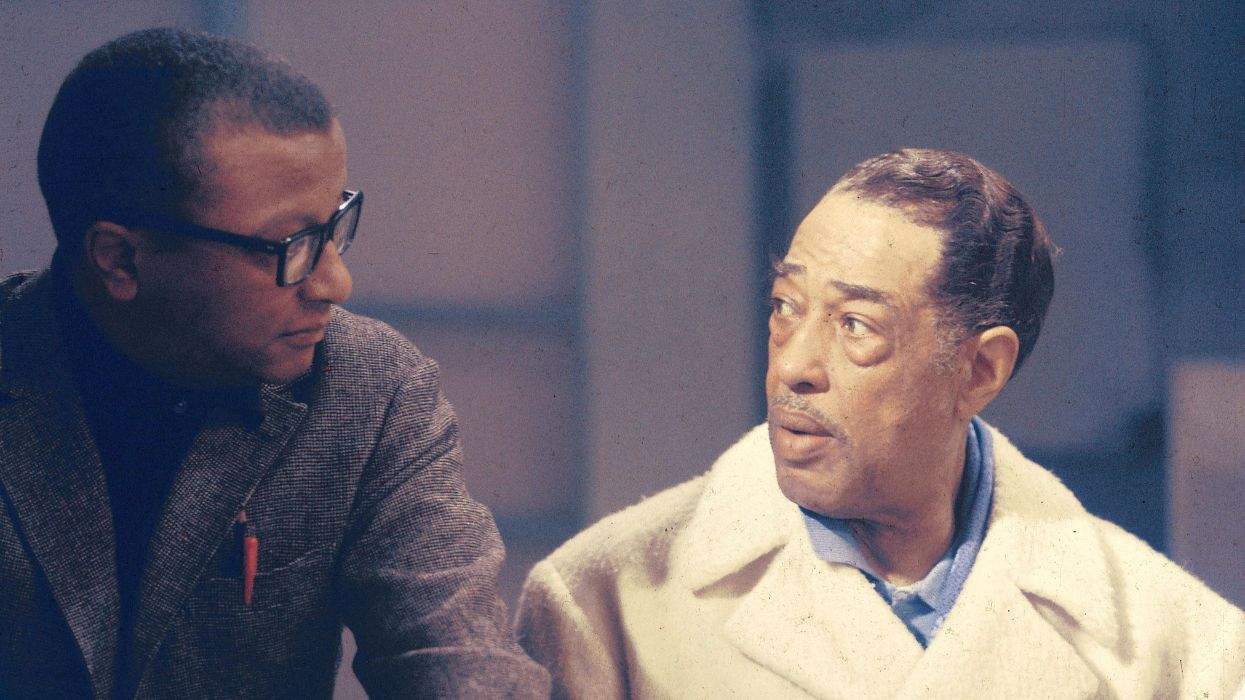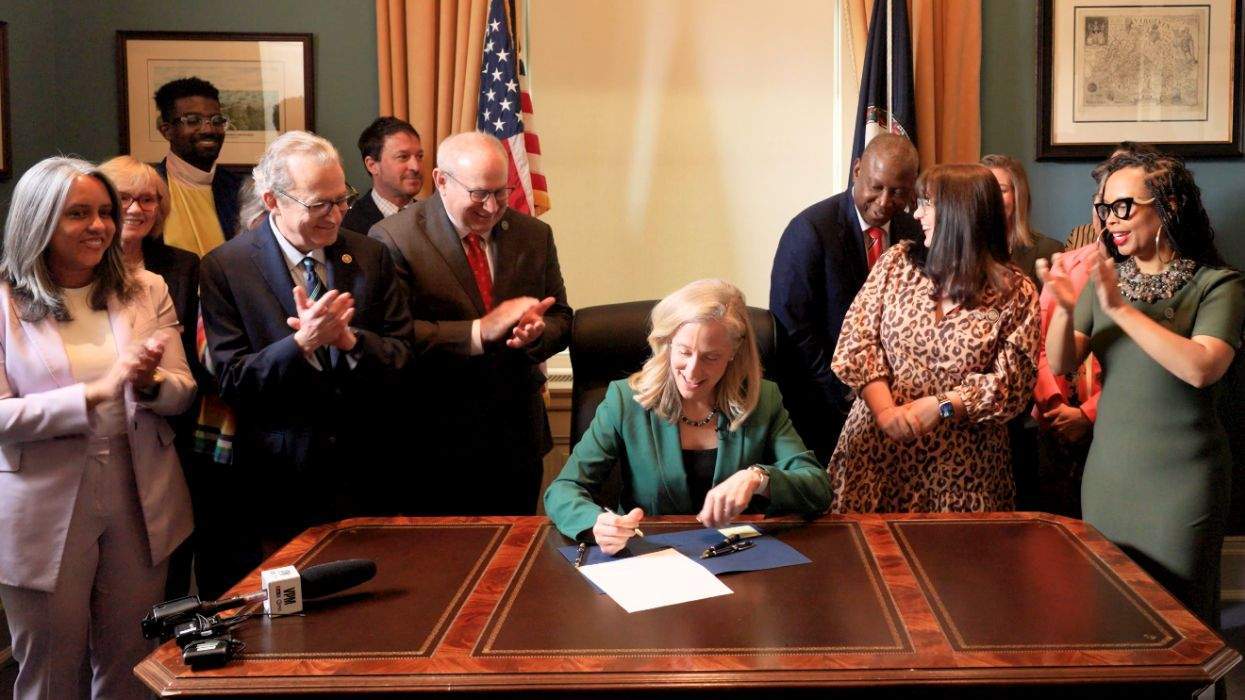Some progressive and LGBTQ activists are wrongly accusing Congresswoman Marcia Fudge of being hostile to gay rights. Why? Because she wants to protect the Civil Rights Act from the Trump administration.
If that sounds absurd, it's because it is.
Fudge recently flirted with a bid to challenge Congresswoman Nancy Pelosi on a clear and hard-to-argue-with platform: that the House's leadership accepted the votes of African-American women while offering relatively little in return. In Fudge's words, "What is wrong with acknowledging the fact that the Democratic Party is becoming more young, more black, and more brown? And letting that be reflected in our leadership?"
The congresswoman from Cleveland has never been afraid to speak to truth to power. This is someone who, as chair of the Congressional Black Caucus, censured the nation's first black president for not appointing diverse leadership in his administration. This is someone, who as chair of the 2016 Democratic National Convention, successfully rebuffed disruptive and raucous Bernie delegates with one line: "We are all Democrats and we need to act like it."
Perhaps that's why Pelosi and Fudge quickly cut a deal wherein Fudge would chair a subcommittee charged with helping to restore of the Voting Rights Act. As a result of her work, Pelosi committed that "the most loyal voting bloc in the Democratic party, black women, will have a seat at the decision-making table."
But Fudge's valid concerns did not register with some of Pelosi's most fervent supporters among the LGBTQ community and our allies, because instead of thoughtfully considering how their party has treated black voters and lawmakers, many hastily and unfairly attacked Fudge as "skeptical-to-hostile" to LGBTQ rights.
Why? Because Fudge -- who has a sterling record on LGBTQ issues and clearly supports full equality for the community -- is not a co-sponsor of the Equality Act, which would open up the Civil Rights Act of 1964 and amend it to include LGBTQ people.
The aim of the Equality Act is both important and urgent, as Fudge would tell you. By adding LGBTQ people to the bedrock civil rights law of our times, we can extend employment, housing and many other protections to people who desperately need them.
Sounds simple, right? The law is already on the books and judges have already reviewed it, so we can just slip a couple more communities in and good to go. Except that's not how legislation works.
As Fudge put it, "The president of the United States is a racist, in my opinion...If we open up the Civil Rights Act, it's like opening up Pandora's box." With Trump as president and a Republican-controlled Senate, any improvement to the law will likely come with a compromise with the most anti-civil rights presidency in at least a generation.
She's right. Opening up the Civil Rights Act means that everyone's rights -- including the countless LGBTQ people who are currently protected because of their race, class, or sex -- could also be at risk.
The most common tactic being employed by opponents of LGBT equality these days is to insert carve outs into rights bills that allow people to claim that, if their religion disapproves of LGBT people, they don't have to follow the law. Similar arguments have been used to undermine the Civil Rights Act's protection of racial minorities in the past and it seems guaranteed that what is currently settled law could become unsettled if Congress opens the Civil Rights Act up to amendments.
But those concerns weren't convenient for otherwise progressive activists to consider, so it's easier just to cherry-pick a fact and smear a black congresswoman as a bigot. After all, African-Americans in particular are often held to a double-standard or blamed when LGBTQ rights measures fail, so why would Fudge be any different?
The "Pandora's Box" analogy is apt because, once opened, it's all up for negotiation. Fudge isn't against LGBTQ rights, she's acknowledging the reality that by using the Equality Act as the vehicle to advance civil rights, we're making a trade-off. That's why she suggested an alternative path forward that should be easy to get behind, a modern civil rights law that includes the LGBTQ community and updates protections for all protected classes.
As a gay man who has worked on civil rights legislation for over a decade, I've had more selfish concerns about the Equality Act. The Civil Rights Act is over 50 years old and its value is steadily being eroded in the era of big data. No one knew what a computer, cell phone, or the Internet was in 1964 and, as the country has changed, discrimination has changed with it. Why try to get in on a law that's barely adequate to protect the people already in it when we can do something new, something that can modernize civil rights law for this era?
My community has always had pride in our ability to innovate and to think differently, why wouldn't we want to legislate in the same way? We wouldn't even need to look far for inspiration; The disability community did it with the Americans with Disabilities Act.
But for these activists, it's not enough to agree with the end goals of a law if you prefer a different mechanism to get there. Critics point to the fact that the LGBTQ rights establishment has coalesced around the Equality Act and that almost every Democrat besides Fudge has co-sponsored it, including the vast majority of the Congressional Black Caucus. Their argument goes like this: Because everyone else has embraced this risk, Fudge must be hostile to gay people.
I can't speak for these members of Congress but I'm sure many of them are simply ok with this trade off. After all, if legislation is about compromise, perhaps it's worth the compromise of a potentially weakened Civil Rights Act to finally get some protections for LGBTQ people. But not for Fudge, and that's a reasonable position.
But some of it probably boils down to political pressure. The LGBTQ community and our allies are core Democratic constituencies and Fudge has paid for her position politically. Despite her excellent congressional scorecard with HRC, the organization's PAC didn't endorse her re-election. Why? Because they partly base their endorsements on whether or not incumbents co-sponsored the Equality Act.
It would be politically expedient for Fudge to be quiet, swallow her concerns, and simply co-sponsor the Equality Act; it also would have been convenient for her to keep her head down while House leadership took her community for granted. But Fudge knows that that making progress isn't about just accepting what's given to you. Sometimes it's important to stand up for your core values and offer an alternative solution, even if it means being pressured or called names.
When you're a staffer to a member of Congress, as I was to her before marriage equality was law of the land, there are countless moments when your boss shows parts of their true nature to you. Her allyship was never in question, be it in her stands on policies, in her insistence that my boyfriend join us at congressional events or in her checking in on my life and relationships.
The good news is that acceptance of LGBTQ people has become a moral litmus test for Democrats. The bad news is that these activists are being reckless in how they use that fact; they owe Fudge an apology.
SCOTT SIMPSON is a past-president of the LGBT Congressional Staff Association and a former deputy press secretary to Congresswoman Marcia L. Fudge.















